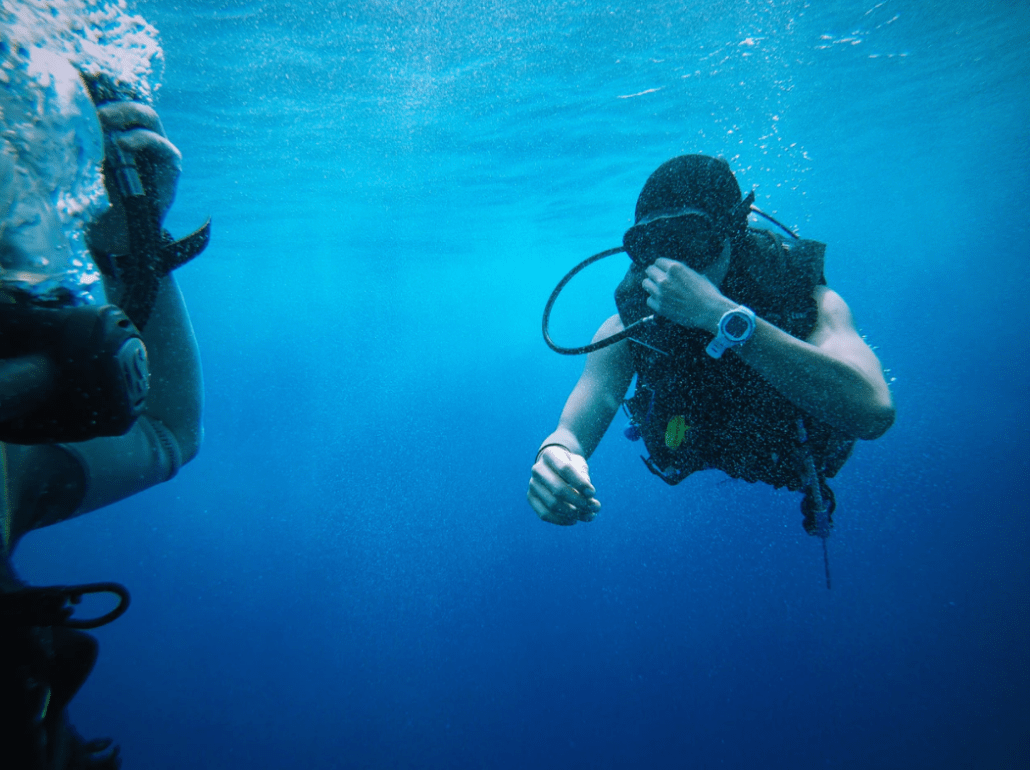5 Ways to Avoid Running out of Air While Scuba Diving
It is a fact that even the most skilled diver can find him/herself running out of air while he/she is submerged. Thus, it is important for both beginnings and professionals to know why this happen and what to do when it does happen so that they can avoid the dangerous consequences of running out of air while underwater. In this post, we’ll cover the five most common errors that lead to out-of-air emergencies and how to avoid these situations.
- Check your air before you enter the water: A common mistake made by many divers is that they simply assume that they have enough air before they submerge or that they if they do run low on air they will always be able to quickly return to the surface. However, it is important to always do a buddy check each time you are about to dive. Be sure that you and your buddy’s air tanks are on and that each of your tanks are full.
- Understand your breathing gas needs: How much air you will need depends on how active you will be while underwater and on the depth at which you have descended. The deeper the depth and the higher the level of exercise, the greater the demand for breathing gas. Therefore, educate yourself before you dive by talking with a certified PADI instructor in Maui.
- Monitor your air pressure frequently: You can never be too mindful of your air supply while you are underwater. Check your pressure gauge occasionally and follow a dive plan that allows you to resurface quickly should the need arise.
- Monitor your air supply more often for deeper dives: Again, your air requirements vary depending on the depth you descend.
- Place your air gauge where it is easily accessible: Don’t tuck your gauge away where you will have to search for it. Tuck it between your stomach and your waist clip so that you can easily access it when needed.
Out of Air Emergency Procedures:
Knowing that you are running out of air is one thing; knowing what to do is quite another thing entirely. Here are some emergency procedures to follow should you run out of air.
- Know your hand signals: For example, the universal sign for running out of air is a clear throat slitting motion.
- Don’t’ panic: Stop, think, and finally act when you believe you are in danger underwater.
- Remember the acronym N.A.C.B.B. This stands for No Air Can Be Bad and will help you remember the order of things you shroud do when you run out of air – Normal ascend, Alternate Air Source, Controlled Emergency Swimming Ascent, Buddy Breather and Buoyant Ascent. Your instructor will be able to inform you of the exact procedure before you dive.
Running out of air can lead to serious consequences. But as long as you plan your dive, most dive accidents can be easily avoided. Just keep this in mind as you enjoy our private scuba lessons in Maui.


